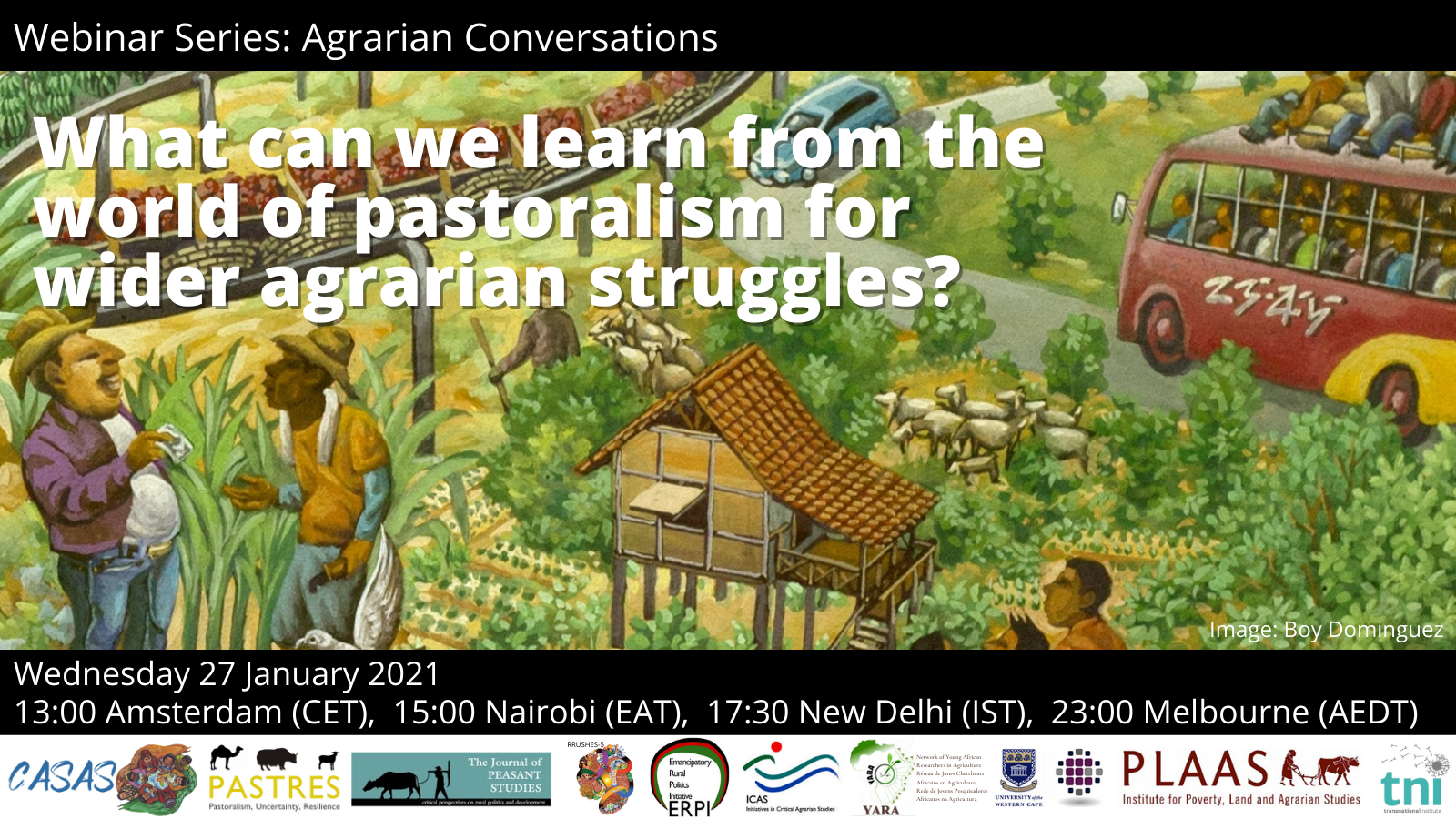In the coming weeks, TNI and partners present three unique webinars on urgent issues shaping the world today. Join the conversations below to hear from panelists – activists and scholars – from all over the world
Was this forwarded to you? Sign up here.
|
|
Dear reader,
In the coming weeks, TNI and partners present three unique webinars on urgent issues shaping the world today. Join the conversations below to hear from panelists – activists and scholars – from all over the world (details below):
Webinar 26 January:
The Great Take Over: How we fight the Davos capture of global governance
In the wake of the COVID-19 pandemic, transnational corporations are seeking to cement their control of global governance, ensuring it serves the interests of business and profits rather than the wellbeing of humanity. Join this webinar to learn how, social movements and international civil society are analyzing this global and systemic trend by showing how it operates in key sensitive sectors and taking the opportunity to build peoples power towards building a strong public and participatory governance for a world beyond the health, climate, inequality and democracy crises.
Tuesday 26 January 2021 at 16 pm CET .
|
|
|
Panelists:
- Susan George/TNI (France) TBC
- Mary Ann Manahan/Beyond Development Global Working Group/Ghent University (Philippines)
- Leticia Paranhos Menna de Oliveira/FOEI (Brasil)
- Sun Kim/Peoples Health Movement (South Korea)
- Sau Vicente/IITC(Mexico); Parminder Jeet Singh/ IT for Change (India)
- Vernor Munoz (Costa Rica)
- Harris Gleckman/ Senior Fellow, Center for Governance and Sustainability, UMass-Boston; formerly UN Ceter on TNCs (USA)
- Baba Aye/PSI & G2H2 C0-President (Nigeria)
|
|
This webinar is co-organised by: Corporate Accountability, FIAN, Focus on the Global South, FOEI, G2H2, IT for Change, MSI Integrity, Peoples Health Movement, Public Services International, ETC Group, and the Transnational Institute
|
|
|
|
|
Webinar 27 January:
What can we learn from the world of pastoralism for wider agrarian struggles?

The Agrarian Conversations series aims to address strategic and urgent issues in and in relation to the rural world today. The format is conversational: 15 minutes input from the main speaker, 15 minutes from a panel of discussants, and 50 minutes open plenary (Q&A) discussion. A background paper is provided in advance to help facilitate a conversational format.
Pastoralists are some of the most marginalised people on the planet, but they have much to teach us all. Pastoralists make a living from livestock on extensive dry and montane rangelands across the world, continuously living with and from uncertainty. Like agrarian societies everywhere, pastoralists are confronted by the incursions of neoliberal capitalism: once remote pastoral regions become sites for investment and pastoralists’ livelihoods are undermined.
New relations of class, gender and generation emerge, with transformed practices of production, labour and market engagement emerging across pastoral settings. However, too often, pastoralists and settled agriculturalists are viewed as separate and mobilisations and movements rarely cross over. Yet, pastoralists’ responses to contemporary challenges highlight, for example, the importance of mobility, common use of resources and collective, networked social arrangements. Given increasingly common agrarian struggles, this first edition of Agrarian Conversations will explore the opportunities to learn from pastoralists, and the importance of seeking greater engagement across agrarian movements.
First episode: Wednesday 27 January 2021 at 1pm CET .
|
|
|
English webinar with simultaneous translation into French and Arabic.
Panelists:
The Journal of Peasant Studies background paper for this webinar is available here.
|
|
A collective initiative of Journal of Peasant Studies, CASAS, PLAAS, ICAS, YARA, ERPI, PASTRES, RRUSHES-5, and the Transnational Institute.
|
|
|
Webinar 05 February:
The Arab uprisings a decade on: Egypt and Tunisia
This webinar is the first of a series - each with a different focus and angle -and will focus on Tunisia and Egypt, the birthplace of the magnificent revolts. The aim is to revisit these historical moments with some of the finest scholar-activists, participants and witnesses from those very contexts.
Friday 05 February 2021 at 5pm CET .
|
|
|
A decade ago on 14th January 2011, after weeks of historic protests, Tunisians deposed their decades-long dictator Ben Ali. Inspired by this revolutionary development, Egyptians embarked on an equally inspiring revolt which in barely 18 days culminated in the overthrow of Mubarak; another despot. These revolutionary uprisings shook the world in a few weeks and swept away western-backed tyrants - one after the other – in what is still undoubtedly among the most unforgettable historical events. The melodious chants “The people want the fall of the regime” echoed across the region and crossed several continents, expressing a deeply self-emancipatory transformative experience.
Like most revolutionary situations led by common peoples, the 2011 uprisings released enormous energy, a collective effervescence, an unparalleled sense of renewal and a major shift in consciousness. Despite an amazing show of resilience and people power, these revolts faced considerable challenges and setbacks.
The movements found themselves pitted against entrenched authoritarian and counter-revolutionary forces that were bent to crush them. But before we hurry to the aftermaths, and without declaring ‘revolutions’ the discursive property of a past tense, we intend to look back, to take stock precisely in order to look forward.
Panelists:
- Mabrouka M’barek: is a doctoral student in sociology at University of Massachusetts Amherst.
- Chafik Benrouine: Tunisian activist and economic analyst
- Dina Makram-Ebeid: Egyptian scholar-activist
- Hossam el-Hamalawy: Egyptian journalist, photographer and activist
The discussion will be hosted by Miriyam Aouragh and Hamza Hamouchene
|
|
This webinar is co-organised by: The Transnational Institute and Rosa Luxemburg Foundation (North Africa Office)
TNI is proud to provide our webinars and research for free as a contribution to movements and activists. However, it takes time and resources to organise these events, to research and to publish. If you would like to support us in this work, Please donate here.
Sincerely,
Jess Graham
Community Builder
|
|
|
|
|